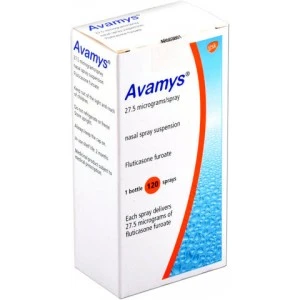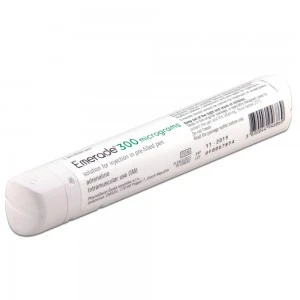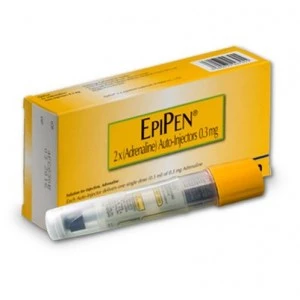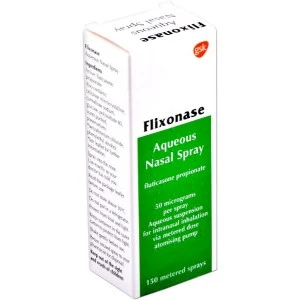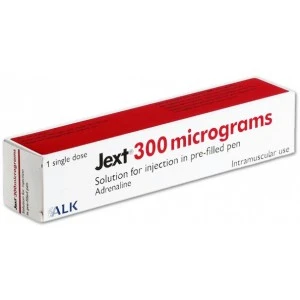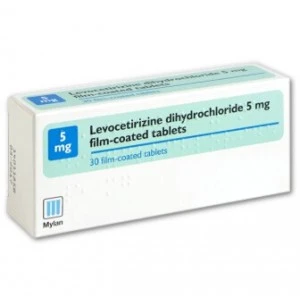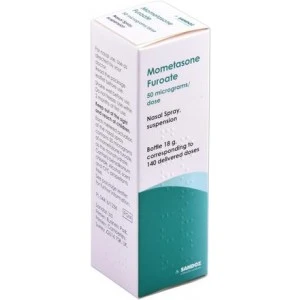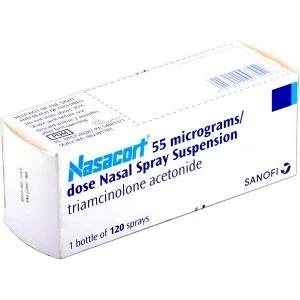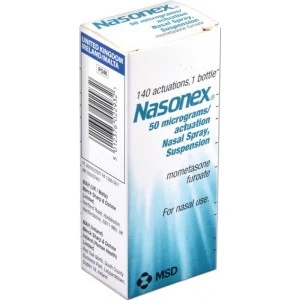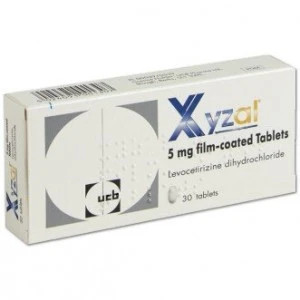Allergies
Allergies are a common health issue in the UK and they come in all shapes and severities. They occur when your immune system reacts to something that is usually harmless, like pollen, dust, food, or animal fur. In some cases, allergies can mildly disrupt our general well-being, slightly affecting our daily activities; however, in the worst and most severe cases, an allergy can be life-threatening.
Some estimate that up to 41 million people in the UK are affected by allergies. At Prescription Doctor, we offer a range of effective allergy treatments, including tablets, nasal sprays, and injection pens.
Avamys
- Inhibits allergic reaction
- Long-acting relief
- Dispensed from a UK-registered pharmacy
Emerade
- Treats severe allergic reaction
- Can be administered through clothes
- Available on prescription from our UK-registered pharmacy
EpiPen
- Effective treatment for anaphylaxis
- Fast acting
- Sent from a registered pharmacy
Flixonase
- Defends against allergens
- Reduces inflammation
- Dispensed from a UK-registered pharmacy
Jext
- A prefilled pen used to treat anaphylaxis
- Secure online pharmacy service
- Reviewed by a qualified practitioner
Levocetirizine
- Non-sedating antihistamine
- Taken with or without food
- Relieves irritating hay fever symptoms
Mometasone Furoate
- Easy to administer
- Prevents daily symptoms
- Dispensed from a UK-registered pharmacy
Nasacort
- Blocks allergic response
- Effective during exposure
- Dispensed from a UK-registered pharmacy
Nasonex
- Prevents allergy symptoms
- Effective daily treatment
- Dispensed from a UK-registered pharmacy
Xyzal
- Treats and prevents allergies
- Tablet or oral suspension
- Dispatched from a UK-registered pharmacy
What are allergies?
An allergy is your immune system’s response to a normally harmless substance (allergen). In most people, these substances, or allergens, cause no problems, but in someone who is allergic, their immune system identifies them as an invader or a threat to health. So, your immune system responds unnecessarily.
Mild reactions can be minor and include things like sneezing or itching, but severe allergies can cause anaphylaxis, a condition that can be fatal if it is not treated appropriately.
Common allergens in the UK
Allergic reactions are caused by allergens. Some of the most common allergens are:
- pets or animals
- dust mites
- tree and grass pollen
- food
- medication
- insect stings
How common are allergies?
It’s estimated that around 1 in 4 people will be affected by an allergy in the UK during their life. Although they are very common in children, allergies can be lifelong or acquired during adulthood.
What causes allergies?
Allergies are caused by your immune system overreacting to usually harmless substances, like food, pollen, pet dander, or other allergens.
You don’t become allergic the first time your body encounters one of these substances. Instead, it goes through a phase known as sensitisation. During this time, your immune system produces a specific type of protein, called antibodies, particularly immunoglobulin E (IgE), which responds to foreign substances.
The next time your body encounters the allergen, the antibodies trigger an inflammatory response, leading to an allergic reaction. When this happens, substances such as histamine and other inflammatory chemicals, like cytokines, are released, resulting in allergy symptoms.
What are the symptoms of an allergic reaction?
Allergic reactions can manifest in a wide range of symptoms, depending on the type and the individual. Common symptoms are:
- itchy eyes, nose, mouth, or skin
- sneezing
- coughing
- being sick
- stomach pain
- hives
- swelling
However, different allergens can cause varying symptoms. The table below lists some of the symptoms associated with specific allergens.
| Allergen | Symptoms |
|---|---|
| Pets | coughing, sneezing, wheezing, watery eyes, red itchy eyes, eczema flare-ups, skin rash, anaphylaxis, breathing difficulties |
| Dust mites | runny nose, watery eyes, asthma, eczema |
| Pollen | runny or blocked nose, sneezing and coughing, itchy red or watery eyes, itchy throat/mouth/nose/ears, loss of smell, headache, feeling tired, pain around the sides of the head or the forehead |
| Food | itchy skin or skin rash, feeling dizzy or lightheaded, swelling of lips/eyes/face, coughing/wheezing/breathlessness, noisy breathing, feeling sick, abdominal pain, diarrhoea |
What are the signs of a serious allergic reaction?
In some cases, your body can have a severe reaction to an allergen, known as anaphylaxis.
Anaphylaxis is a life-threatening emergency that always requires medical attention.
Anaphylaxis symptoms include:
- swelling of the lips, mouth, tongue, or throat
- difficulty breathing or swallowing
- feeling faint or dizzy
- rapid heartbeat
If you or someone you know is experiencing symptoms of anaphylaxis, you must call 999 or go to your nearest Accident and Emergency department.
What treatments are available for allergies?
There are several allergy treatments available, but these typically address the symptoms of allergies rather than the underlying cause. Once you know you are allergic to a substance, you’ll need to try to avoid the allergen, if possible. However, this can be more challenging in some cases, such as hay fever, where it is extremely difficult to completely avoid pollen during the Summer months.
If you’re looking to alleviate an allergic reaction, then antihistamines can help. At Prescription Doctor, we offer nasal sprays and tablets to treat allergic reactions. We can also prescribe injection pens for the most severe allergic reactions.
Nasal sprays
Injection pens
Tablets
How quickly do allergy treatments work?
Allergy treatments can take effect from as little as minutes to months, depending on the allergy, treatment, and the individual. For example, injection pens like EpiPen can work in as little as 5 to 10 minutes. Whereas nasal sprays, such as Flixonase, can take a few days to work fully.
Where can I buy allergy treatments?
Prescription-only allergy treatments are available to buy online and may be available on the NHS, but you’ll need a prescription from a doctor to get them.
If you’re looking to prevent allergy symptoms, many allergy or hay fever tablets, such as antihistamines, are available online and over the counter without a prescription.
Can I buy allergy treatments online?
Yes, you can buy allergy treatments online from Prescription Doctor by completing our brief online health consultation form, which allows our clinicians to determine if the treatment is suitable for you.
Are over-the-counter allergy treatments available?
Some allergy treatments are available to buy over the counter, including antihistamines, decongestants, topical creams, and nasal sprays.
Can the NHS prescribe allergy treatments?
Yes, the NHS will prescribe some allergy treatments, such as emergency medicines, but they generally don't prescribe antihistamines, as these are available to buy over the counter.
© 2013 - 2026 Al Muhsineen Limited. All Rights Reserved. Registered Pharmacy: 34 Halliwell Road, Bolton BL1 8RL. Registered Office: 254 First Floor, Shearbrow, Blackburn, England, BB1 8DS

